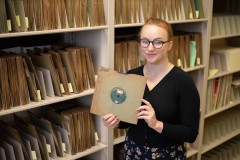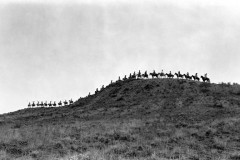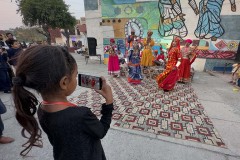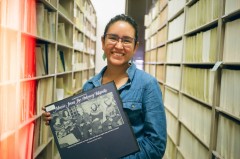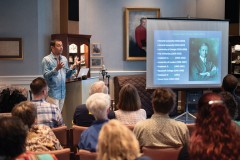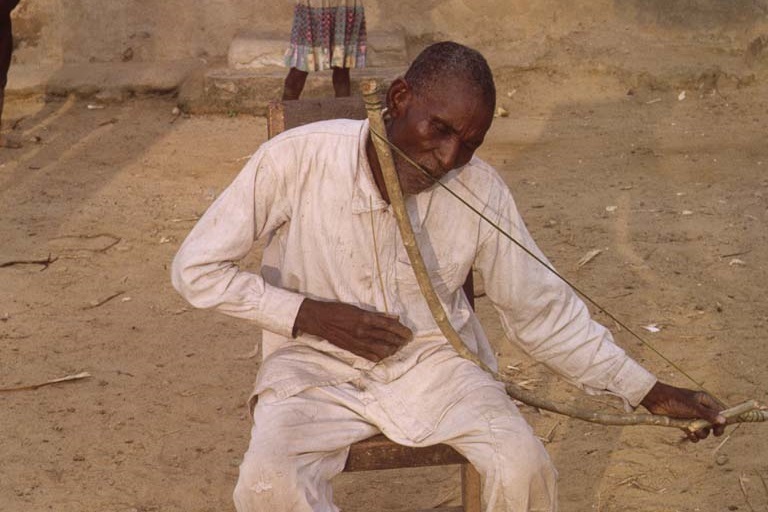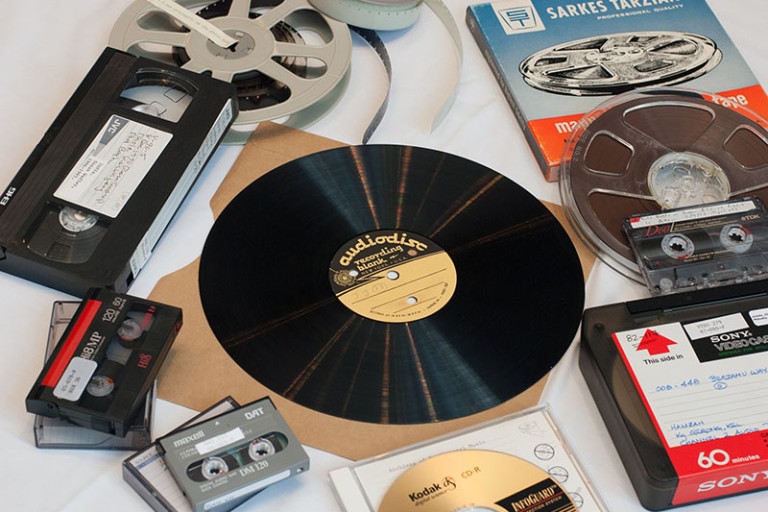
The Archives of Traditional Music (ATM) is housed in the William and Gayle Cook Music Library. With over 120,000 recordings, including more than 4,000 field collections, it is one of the largest university-based ethnographic sound archives in the United States. Many of these recordings are unique and cannot be found in any other repository in the world.
The ATM collections were digitized as part of IU's recent Media Digitization and Preservation Initiative, and the physical media on which they were recorded (tapes, wax cylinders, etc.) are preserved in the secure climate-controlled book and object repository operated by IU Libraries on the Bloomington campus. The ATM Research and Reading Room in the Music Library offers students and researchers a space to access materials from the ATM collection, as well as other library materials relevant to ethnomusicology and related fields of study.
A Note on Stewardship
The ATM is a collection of culturally significant and powerful sound recordings that require special care and handling. IU Libraries takes seriously the challenge of stewarding such a collection for scholarly purposes, while always respecting the people whose cultural practices were captured on these recordings, sometimes without their full consent. IU Libraries seeks to understand and consult with originating communities as to the proper care, sharing, and storage of cultural records materials whenever possible.
As part of our responsive best practices for stewardship, some collections may only be experienced by specific communities or descendants of indigenous people. ATM recognizes that the existence of the recordings may affect community members, and acknowledges that originating communities retain cultural, spiritual, and ritual rights to them, as well as to the privileges and knowledge some pieces contain.
One of the pillars of the 2030 IU Libraries’ Strategic Plan focuses on special collection access, ensuring materials such as the ATM audio archive are prioritized. This is a necessarily thoughtful and mediated process, and one which is ongoing and evolving.


